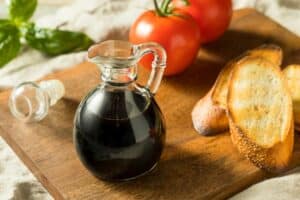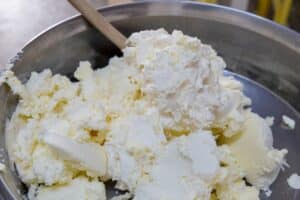If you don’t happen to have any Greek yogurt on hand, there are a number of different substitutes that you can use to make a delicious meal. Ingredients such as sour cream, mayonnaise, buttermilk, cream cheese, and even avocado work in both cooking and baking as excellent Greek yogurt substitute.
Greek yogurt is popular thanks to its thick, creamy consistency and tart flavor. Compared to regular yogurt, it contains more protein and less sugar per serving. However, finding Greek yogurt at the store can sometimes be a challenge, especially for an affordable price.
When substituting Greek yogurt, you should choose your replacement ingredient based on the recipe in question and the results that you want.
Here, we’ve considered all of the readily available alternatives with the right taste and texture to act as a substitute for Greek yogurt. Read on to discover our top five picks for the best substitutes for greek yogurt.
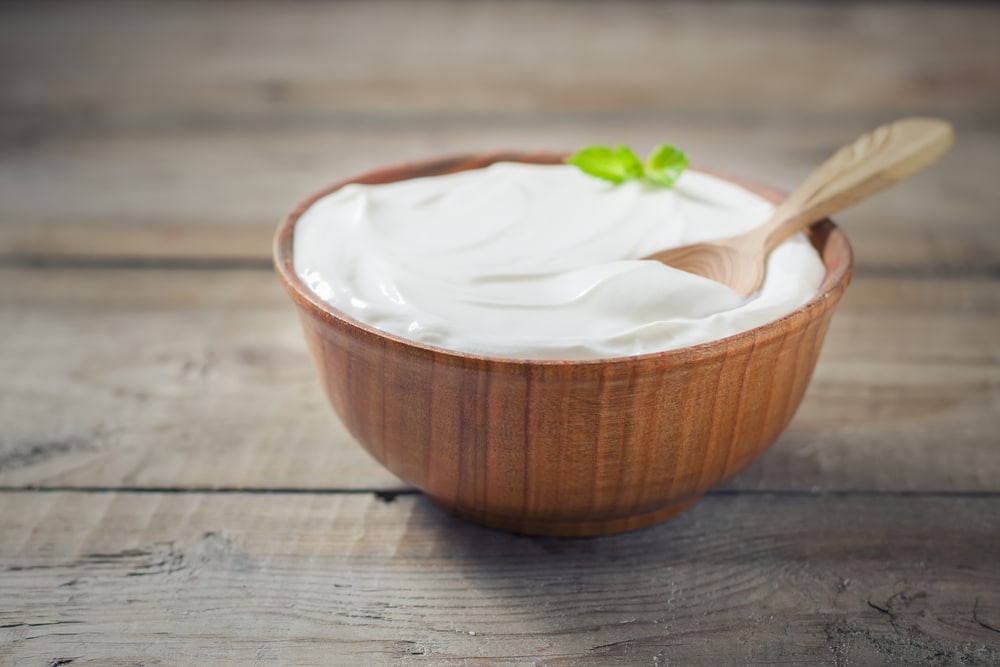
Top 5 Recommended Greek Yogurt Substitute
1. Sour Cream
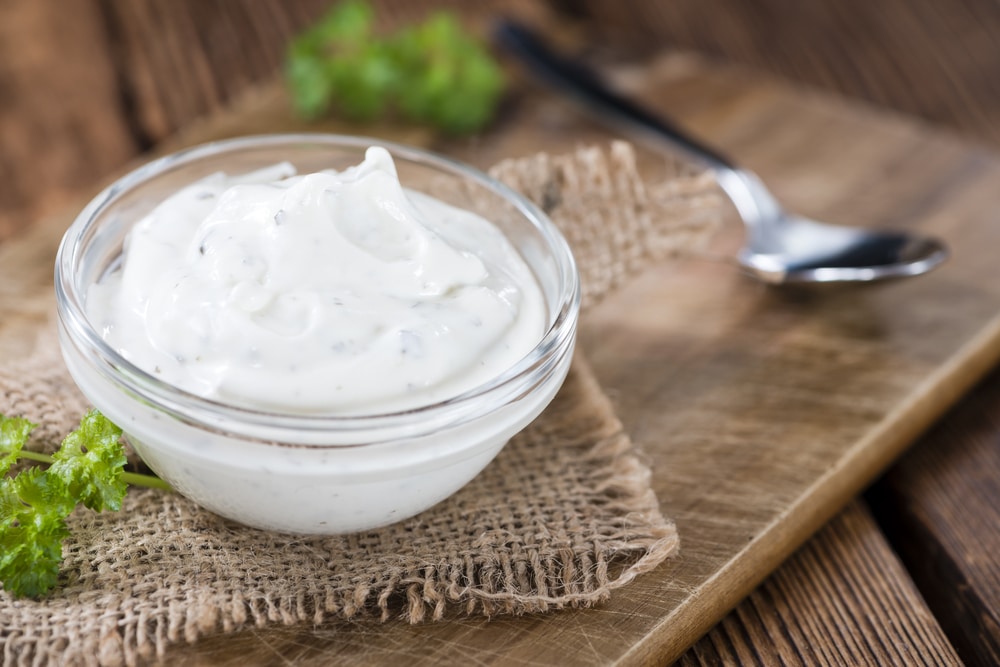
Sour cream is, hands down, one of the best substitutes for Greek yogurt that’s readily available at your local grocery store. It has the same thick, creamy consistency as well as the acidity needed for most cooking and baking applications. While slightly more decadent than Greek yogurt, sour cream will give you a similar end result in the kitchen.
You can substitute sour cream for Greek yogurt in a 1:1 ratio in almost any recipe. Sour cream works particularly well in dips and sauces, thanks to its silky texture. Bakers will also appreciate how moist sour cream makes goods such as cakes, brownies, and muffins.
The only drawback to using sour cream as a substitute is its fat content. Sour cream contains more fat and a higher number of calories per serving, which may not make it the best choice for those on a diet.
If you have leftover sour cream, you can easily preserve it by freezing. See our guide on how to freeze sour cream.
2. Cream Cheese
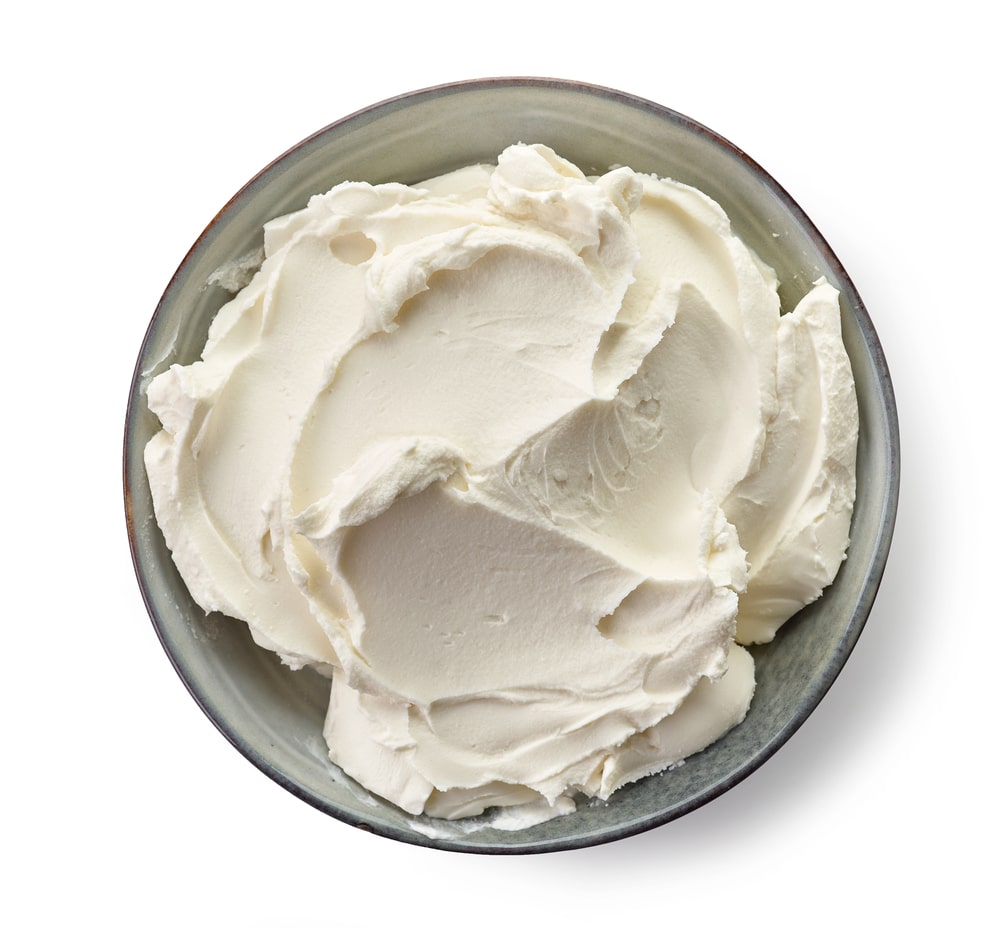
Cream cheese makes an excellent Greek yogurt alternative in both cooking and baking, though it has a thicker consistency than most Greek yogurt brands. Your end product may end up being heavier or more moist than intended. Cream cheese also has a much more mild acidity, so it won’t add quite as much tanginess to a dish.
Despite its mellow flavor, cream cheese still boasts a similar effect to Greek yogurt when baking. It makes goods such as breads and cakes moist yet fluffy thanks to its slight acidity. When used in dips, sauces, and spreads, it results in a creamy, hearty dish with plenty of substance. You can use cream cheese in a 1:1 ratio in most recipes.
If you’re worried about cream cheese affecting the texture of your meal, you can thin it out with a bit of water, milk, or cream. You can also add a few drops of lemon juice to mimic the tangy flavor of Greek yogurt if you’re looking to brighten your dish.
Just like sour cream, cream cheese can also be preserved by freezing. Learn how to freeze cream cheese.
3. Mayonnaise
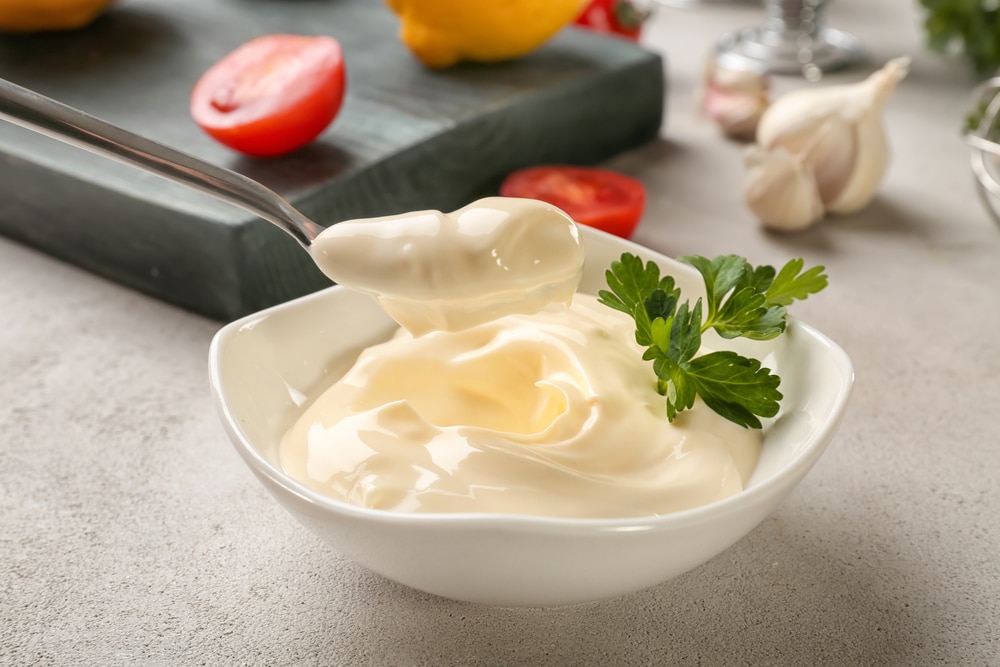
Mayonnaise is another cheap, readily available alternative to Greek yogurt. It’s dairy-free, making it an ideal substitution for people with lactose intolerance. It contains eggs, vegetable oil, and an acid such as vinegar, with some brands adding in components such as olive oil or avocado.
Mayonnaise has a similar taste to Greek yogurt, thanks to its acidic component. It works well when cooking, lending a creamy consistency to any meal. However, it’s slightly thinner than Greek yogurt, so you may have to add a thickener for the correct texture. You can use mayo in a 1:1 ratio in recipes.
When baking, mayonnaise may not be the best choice, as it contains eggs. Instead of helping to moisten dishes such as cakes, the egg will set and create a tough, rubbery texture. It’s best to stick to dairy substitutes if you want to stay true to the recipe.
4. Buttermilk

Buttermilk comes from the liquid that’s leftover after churning butter. It’s a creamy dairy product just slightly thicker than milk and boasting a tart, tangy flavor prized in baked goods such as buttermilk pancakes and biscuits.
Thanks to its acidity, buttermilk makes an excellent alternative to Greek yogurt in baking. It produces moist, fluffy goods that rival the taste of anything made with yogurt. However, buttermilk isn’t always the best choice when cooking. It’s much thinner than Greek yogurt and may produce a weak or watery result.
When substituting buttermilk for Greek yogurt, you shouldn’t add it in a 1:1 ratio. Instead, add a quarter less buttermilk than the amount of yogurt the recipe needs. Doing this will ensure that you don’t over acidify your dish and will keep sauces, batters, and more from becoming too thin.
5. Avocado

Avocado is sometimes referred to as “nature’s butter” thanks to its creamy texture and mild, almost neutral taste. It works well as a healthy, all-natural substitute for dairy products such as Greek yogurt. Avocados are stuffed full of healthy fats and essential nutrients such as Vitamin C, potassium, folate, and more. Unlike most other substitutes for Greek yogurt, avocados are also vegan.
You can substitute avocado for Greek yogurt in a 1:1 ratio when cooking and baking. To better mimic the effects of Greek yogurt, you may want to add some acidity by including a few drops of lemon or lime juice in your dish.
Frequently Asked Questions
Here, we’re going to answer some common questions about what Greek yogurt is, how to replace it in recipes, and the appropriate time to use substitutions.
While Greek yogurt and regular yogurt contain the same ingredients, their production processes produce two vastly different end results. While yogurt tends to be mild and smooth, Greek yogurt is much thicker and tangier in taste.
To make regular yogurt, you must heat milk and add a bacterial culture before leaving it to ferment and acidify. Greek yogurt gets made by straining the additional liquid from regular yogurt to create a thicker, creamier product.
Due to the straining process, it takes more milk to make Greek yogurt than it does regular yogurt. As a result, natural Greek yogurt has more protein and less sugar per serving. It also tends to be more expensive than regular yogurt.
Greek yogurt is a popular ingredient in both cooking and baking thanks to its tangy flavor and creamy consistency. It can lend some extra flavor and thickness to meals such as casseroles, soups, and more. Greek yogurt also makes baked goods more moist, while the acidity activates baking soda for a lighter, fluffier texture.
Greek yogurt is more expensive than regular yogurt, making it a cost-prohibitive choice for some. It may also pose a health risk to people with hormonal imbalances, as most Greek yogurt contains natural hormones that can affect overall blood levels. People with lactose intolerance may also want to avoid Greek yogurt in favor of a dairy-free substitute such as mayonnaise or avocado.
Bakers worldwide prize Greek yogurt for its creamy texture and zesty flavor. What’s more, the acidity works to activate baking soda, introducing more air into goods for a lighter and fluffier feel. You can find Greek yogurt present in plenty of delicious recipes for cakes, breads, muffins, and more.
If you want to substitute for Greek yogurt in baking, you need to use a replacement that’s equally creamy and acidic. Sour cream is often the best option, thanks to its similar flavor and texture. Buttermilk also makes a good option, though you may need to add a thickener to achieve the desired consistency for your baked goods.
Greek yogurt is also a popular ingredient amongst chefs when cooking. It serves as a thick, creamy base that brightens any dish with its acidity.
If you plan on replacing Greek yogurt in a savory recipe, it’s important to look for a substitute that’s similar in taste. Sour cream, buttermilk, and cream cheese all work well as alternatives to Greek yogurt when cooking.
If you’re more concerned with consistency than tanginess, you can opt for a substitute with a milder flavor. Avocado and mayonnaise both offer a similar texture to Greek yogurt, but their acidity is much more mellow. They’re less likely to overpower mild dishes such as white fish or cream sauce.


